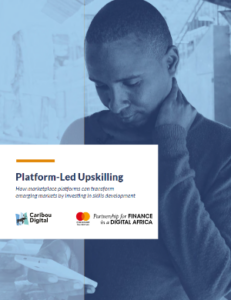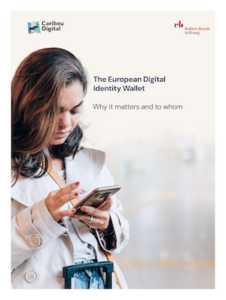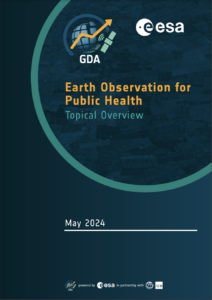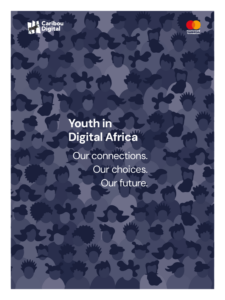Platform-led upskilling is the training that marketplace platforms provide to small-scale vendors and self-employed workers, even outside the scope of a conventional employer- employee relationship. It is a widespread and necessary part of doing business, especially in regions with significant skills gaps. Upskilling happens in three ways—via face-to-face or interpersonal interactions, online training, and in-workflow training moments—and the content includes various combinations of platform proficiencies (how to use the service), financial and digital literacies, vocation- specific skills, and soft skills.
The most important part of platform-led upskilling in Africa is that which results in portable skills and adds to the overall level of skill in a workforce. When delivered by platforms, such upskilling has the potential to strengthen the social contract between platforms and vendors/workers, and it brings platforms into the broader education landscape of the markets in which they operate. Indeed, this upskilling is the kernel of a potentially powerful alignment between the respective strengths and goals of marketplace platforms, their users (laborers, suppliers, and customers), and the development community’s interest in promoting prosperity and skilled workforces.
Platform-led upskilling is difficult and expensive; there’s a lot of work to be done to refine it as a craft and create sources of advantage for marketplace platforms. But our research and interviews with platforms around the world illustrate that platforms are already teaching portable skills. At present, the scale at which platform-led upskilling could impact the contours of labor markets is undetermined but likely large. Mobilizing platform-led upskilling will involve platforms, governments, and the development sector in new knowledge exchanges and partnerships to create better livelihoods in the digital era. As such, we have six calls to action:
1 Platforms can improve their own upskilling activities immediately;
2 Platforms can frame the upskilling that they are doing in language that will resonate with partners in the economic development sector;
3 Together, platforms and the development community can form new upskilling partnerships;
4 Together, they can build an evidence base about transformational upskilling;
5 Together, they can nurture a broader community of practice;
6 And, together, they can build a supportive ecosystem to further advance the impact of upskilling on individual workers and workforces as a whole.





